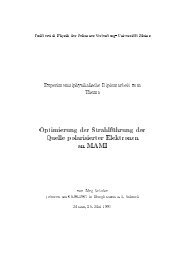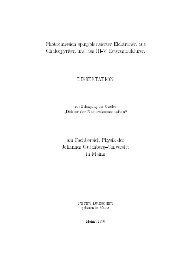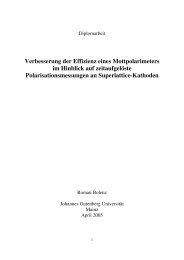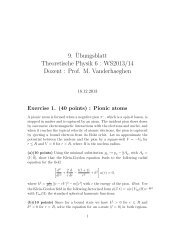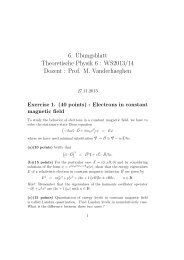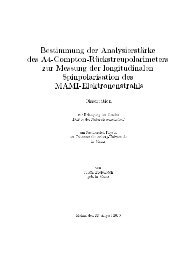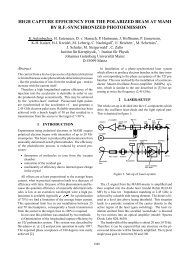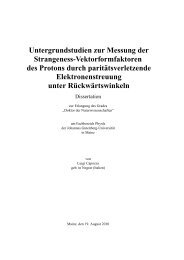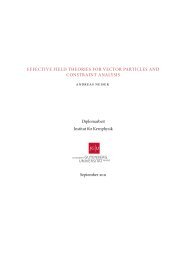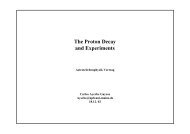Compton Scattering Sum Rules for Massive Vector Bosons
Compton Scattering Sum Rules for Massive Vector Bosons
Compton Scattering Sum Rules for Massive Vector Bosons
You also want an ePaper? Increase the reach of your titles
YUMPU automatically turns print PDFs into web optimized ePapers that Google loves.
Introduction<br />
Historical Background<br />
In the mid-1960s, S.D. Drell and A.C. Hearn, and, independently, S.B. Gerasimov,<br />
developed a relation to determine the anomalous magnetic moment from polarized<br />
<strong>Compton</strong> scattering (CS) on nuclei in the framework of dispersion theory, the GDH<br />
sum rule (in short, GDH) [Ger66, DH66]. <strong>Sum</strong> rules are a special kind of dispersion<br />
relations. Dispersion relations are useful as it is possible e.g. to calculate 2-loop<br />
contributions from pure one-loop cross sections (c.f. [Kni96]). In case of the GDH, the<br />
sum rule allows the exact calculation of the anomalous magnetic moment from the<br />
measured cross section, i.e. connect a low-energy constant to a dynamical spectral<br />
integral.<br />
The GDH sum rule has later been extended to particles of arbitrary spin [Lin71].<br />
With the advent of quantum chromodynamics (QCD) as a complete theory of strong<br />
interactions, however, interest in the dispersion theoretic approach has languished. In<br />
recent years, the GDH has come to new fame. New experiments, e.g. at the Mainz<br />
Mikrotron facility (MAMI) [Tho06], and theoretical predictions, e.g. by L. Tiator<br />
[Tia00, Tia02] and D. Drechsel et al. [DKT01], further solidified the validity of the<br />
sum rule.<br />
In 1966, Hosoda and Yamamoto showed [HY66] that the sum rule can also be<br />
gained from equal-times current algebra theory. The dispersion theoretic approach<br />
however is stronger as the current algebra approach relies on some assumptions which<br />
cannot be proven generally [ibid., footnote 2]. For this reason, we will focus solely on<br />
the dispersion theory approach in this work.<br />
vii



